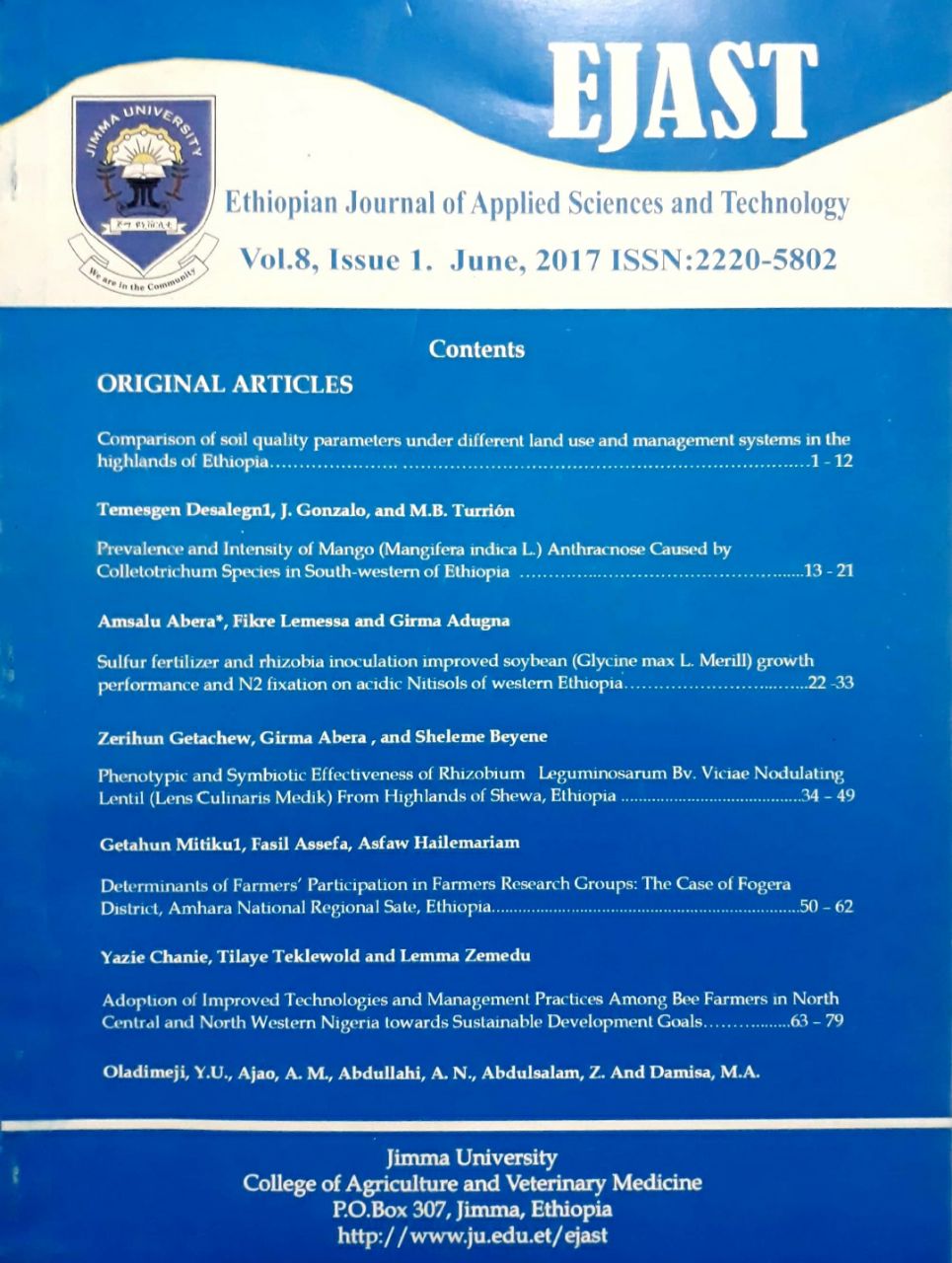Genetic diversity among strains of Ralstonia solanacearum from Ethiopia assessed by repetitive sequence-based polymerase chain reaction (rep-PCR)
Main Article Content
Abstract
The genetic diversity among Ethiopian strains of Ralstonia solanacearum, causal agent of
bacterial wilt, was assessed by repetitive sequence-based polymerase chain reaction (rep-
PCR) method with BOX and ERIC primer sets. The study comprised 62 strains collected
from potato, tomato and pepper, grown in Ethiopia (43 were identified as biovar 2 race 3,
and 19 as biovar 1 race 1) and five reference strains obtained from different countries. The
rep-PCR defined two major groups (1 and 2) among Ethiopian strains at 55% similarity
level, each matching to a single biovar. Group 1 comprised biovar 2 and group 2 biovar 1
strains. At 90% similarity level, biovar 2 strains were grouped into five and biovar 1 into
one. Third group, biovar 3, was formed by two of the reference strains at 55% similarity
level. Comparative analysis of rep-PCR indicated that Ethiopian biovar 2 strains may fall
in phylotype II and be American origin, while most of the biovar 1 strains may fall in
phylotype III and be African origin. The study showed diversity in Ethiopian R.
solanacearum populations which is valuable information and could help in designing
disease control strategies.

